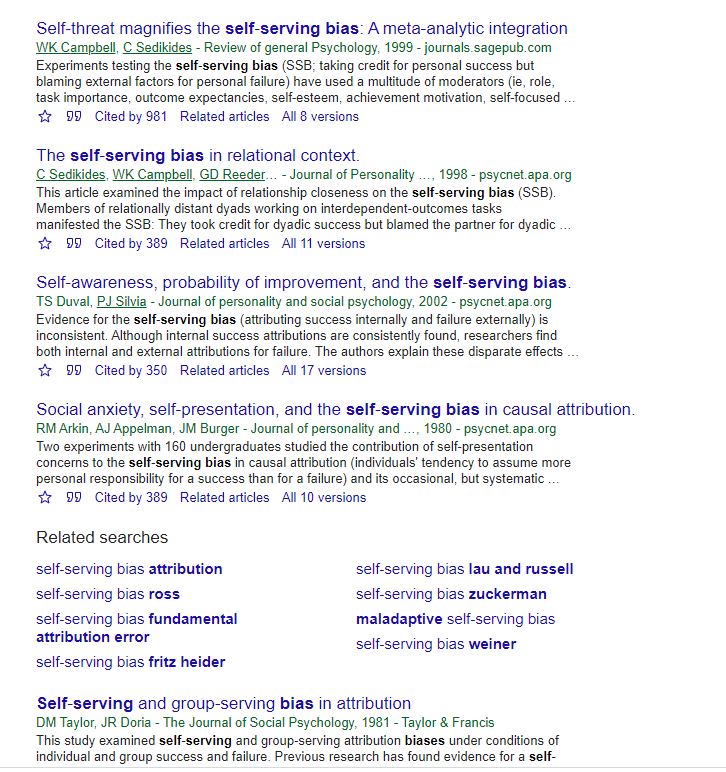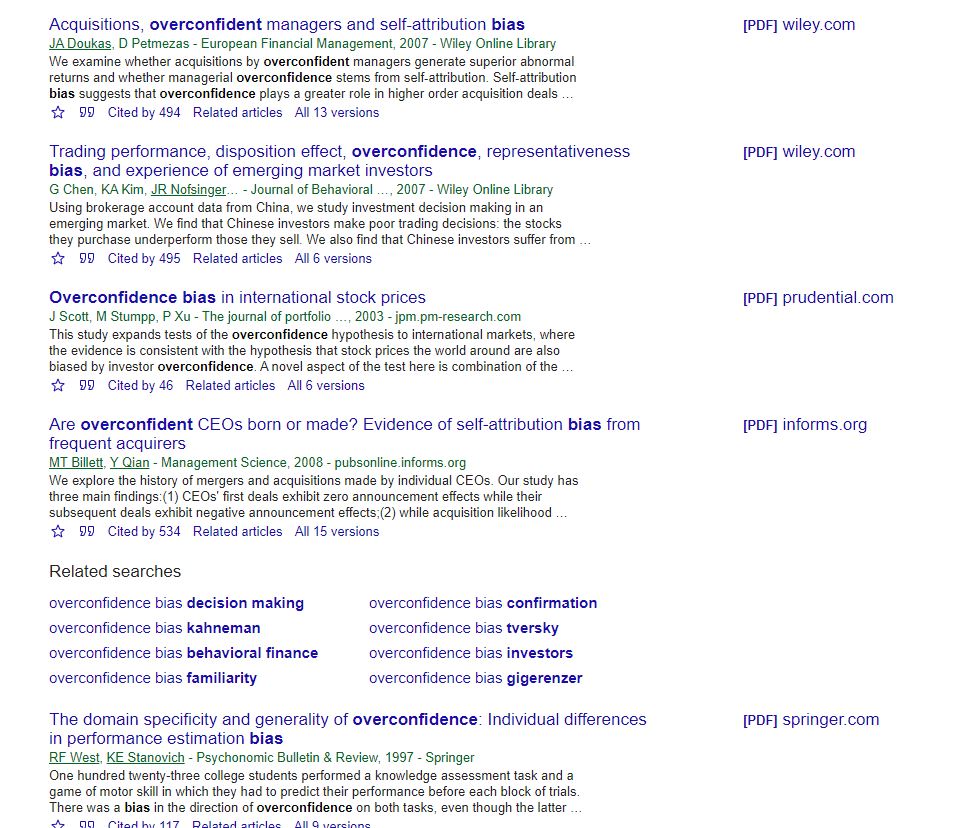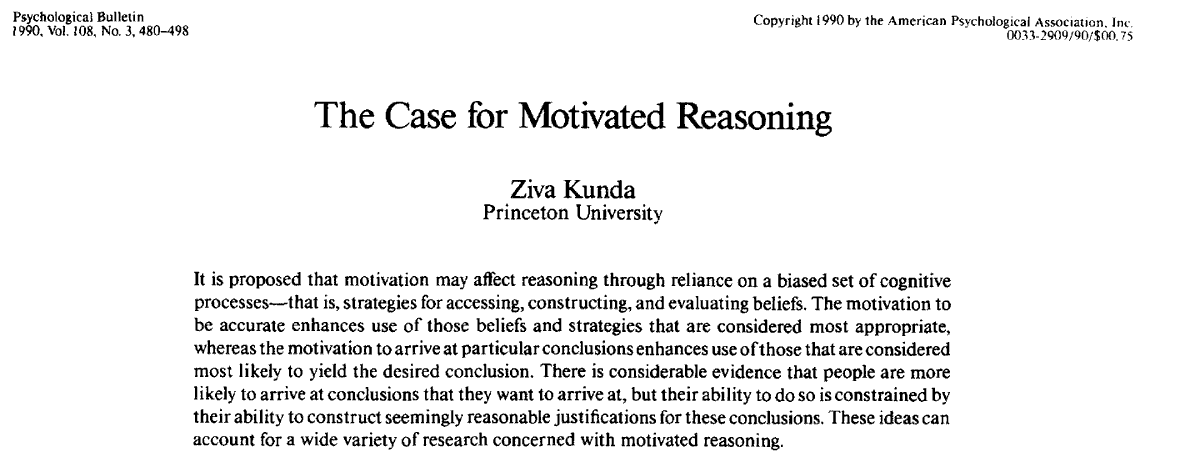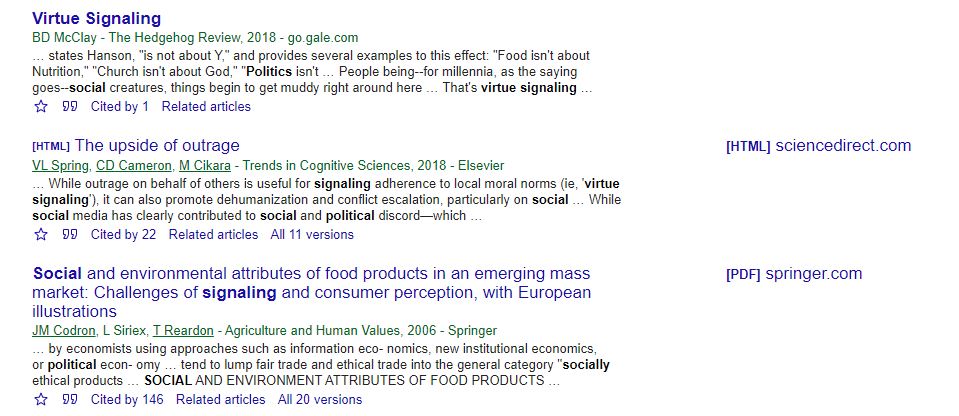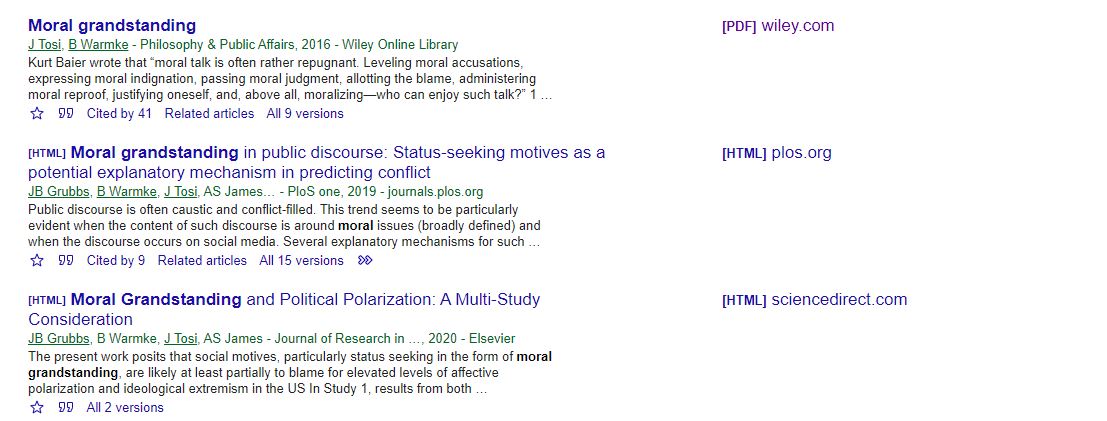Listening to people? Sometimes a good idea, sometimes not so much.
Reasons to doubt "lived experience"? Many.
A Thread based on some of the (few) well-established findings in psychology.
Reasons to doubt "lived experience"? Many.
A Thread based on some of the (few) well-established findings in psychology.
Self-serving biases: People often perceive themselves to be more competent and moral than they really are.
Motivated reasoning & confirmation biases: People often selective seek out info that supports their beliefs/attitudes and disproportionately deploy their critical thinking skills towards targets they oppose: https://www.psychologytoday.com/us/blog/rabble-rouser/201908/confirmation-bias-real-bias-or-delegitimization-rhetoric
Myside biases: A type of motivated reasoning in which one works hard to vindicate one's own side (eg, political party, ideological view, profession, etc.) and is highly critical of "the other side."
An additional litany of biases, including but not restricted to:
representativeness, availability, conjunction fallacy, failures to account for regression & small samples, halo effects, and framing effects. Good blog here: https://collegeinfogeek.com/avoid-cognitive-biases/
representativeness, availability, conjunction fallacy, failures to account for regression & small samples, halo effects, and framing effects. Good blog here: https://collegeinfogeek.com/avoid-cognitive-biases/
Virtue signaling. Social desirability bias on mega-cosmic steroids.
This is a newer term, so understanding of it is not quite so well-established, but it is off to a good start and is certainly a caution to accepting "lived experience" uncritically.
This is a newer term, so understanding of it is not quite so well-established, but it is off to a good start and is certainly a caution to accepting "lived experience" uncritically.
Moral grandstanding. A cousin of virtue signaling, it takes place mostly though not exclusively on social media. It involves taking extreme moral positions, at least in part, to gain status within one's own group.
Victimhood posturing. The more one can position one's self as a "victim" the more one can justify destroying your enemies. This cuts across left/right (as shown below) & has historical precedent. Hitler played on how Germany was victimized by Versailles & Jews.
Now, this does not mean "lived experience" is completely useless. Sometimes, some experiences are hard to capture using conventional social science methods.
I do NOT reject "personal anecdote" as relevant data. Its just a tiny piece and itself subject to scrutiny.
I do NOT reject "personal anecdote" as relevant data. Its just a tiny piece and itself subject to scrutiny.
There are so few non-leftists in social psych, that it is quite hard to get enough for a serious quantitative survey. So *even I* have a paper that relies, in part, on "lived experience." (I know, some of you may be surprised by that).
In testimony to the validity of the lived experiences of political discrimination -- see that red blotch? It is from a proof (not the final pub) because an author wanted his/her name removed -- for fear of what might happen to his/her career if his/her name was on the paper.
"Lived experience" can either be a reason to shut someone up ("you must respect my lived experience!")
OR
It can be something valuable.
OR
It can be something valuable.
ANYTIME someone has deep experience in some field, whether it is
auto repair
college admin
running a small business
stock investing
etc
if you do not have lots contrary evidence? You probably want to listen to what they present as wisdom.
auto repair
college admin
running a small business
stock investing
etc
if you do not have lots contrary evidence? You probably want to listen to what they present as wisdom.
And you might want to do that even if you do have contrary evidence.
END.
END.

 Read on Twitter
Read on Twitter